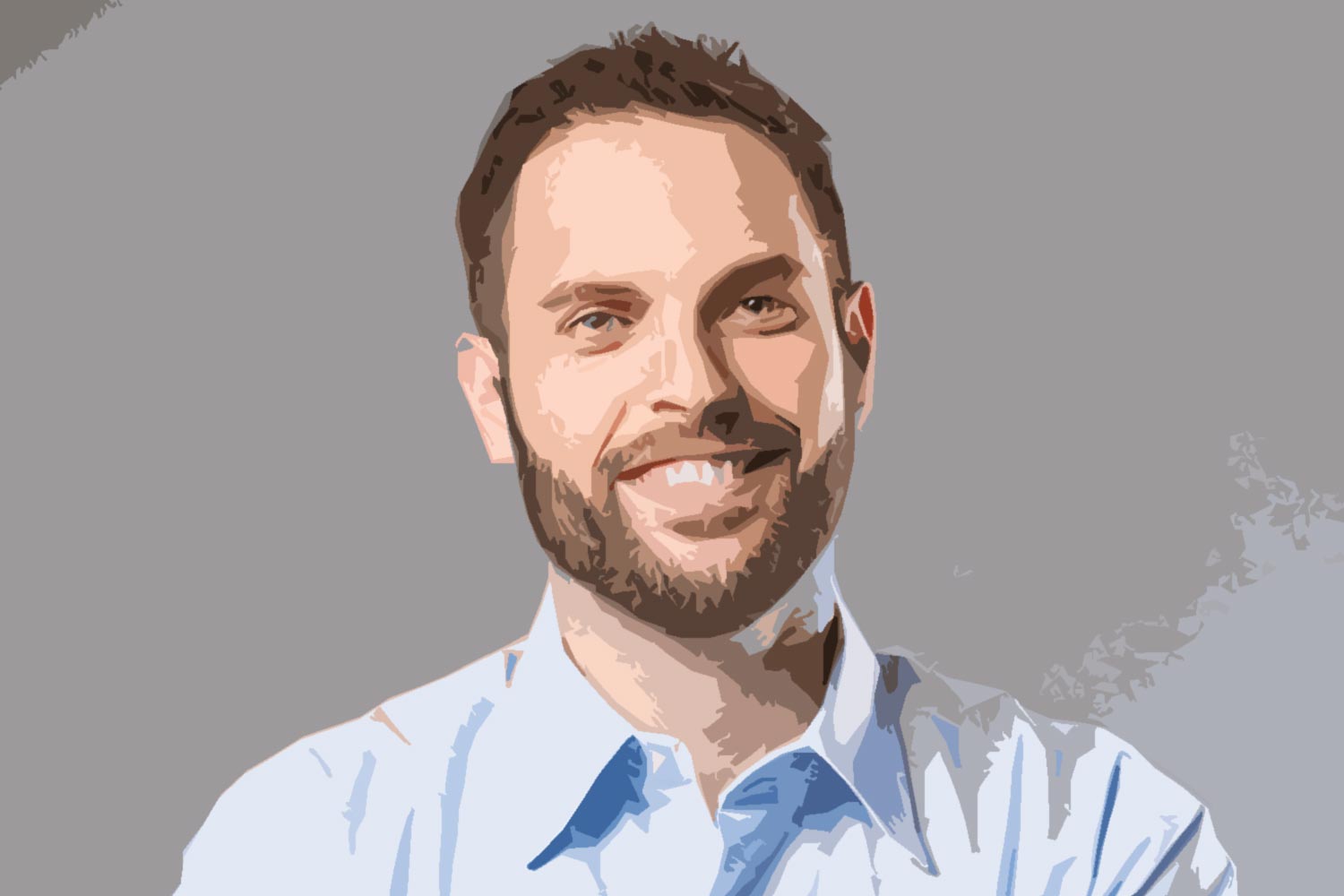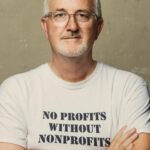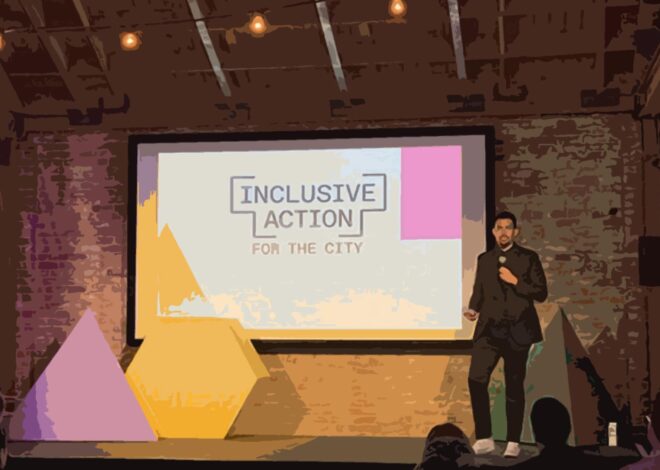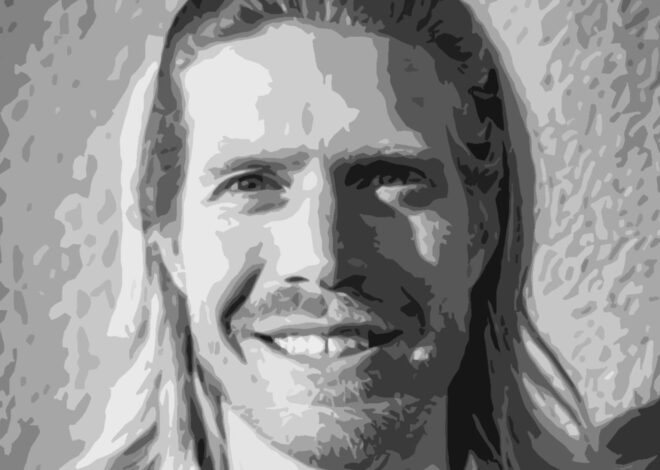Against the Current: Mitch Gruber
Interview with Mitch Gruber, social entrepreneur, social justice advocate, and Chief Strategy Officer at Foodlink.

“I aim to leverage existing infrastructure to create stronger, healthier food systems.”
I’ve long argued that nonprofits should be more engaged in politics, so when any colleague runs for office, I usually spread the word. One such colleague is Mitch Gruber, who also happens to be one of my favorite social entrepreneurs and fierce social justice advocates. Hailing from Rochester, NY (where both Susan B. Anthony and Frederick Douglas lived), he has a deep, resilient, and abiding commitment to community.
What’s your thing… not what you do, but why you do what you do?
I was in Zimbabwe in 2007 as the nation was experiencing one of the most severe economic crises in modern times. Times were desperate, and tension was high, but every night the families I stayed with found comfort and joy in food. When I came home to Rochester in 2008, I taught Head Start in a divested community where I found that food fostered no such feelings: the food was not high-quality, the kids rarely enjoyed it, and I wound up throwing a lot of it in the garbage every day. Those two bookended experiences led me to do what I do today. I believe in the power of food to unify and empower. I’m frustrated by waste and inefficiency in the food system. So, I’ve decided to work on those things at a food bank, as an academic, and as an elected official.
OK, now tell us what you do.
I have three different professions that all complement each other. I’m the Chief Strategy Officer for Foodlink, one of the most progressive food banks in the nation. I’m a member of City Council in Rochester, New York, the third biggest city in the State. It is a beautiful, wonderful city with an incredible history; it is also struggling in the post-industrial economy, with one of the highest poverty rates in the nation. I am also a historian. I wrote my dissertation about the history of the food retail landscape and the transition from a very public food system to a greedy, corporate one.
In all three roles, I aim to leverage existing infrastructure to create stronger, healthier food systems.
As a young leader, what makes you want to scream most about the state of philanthropy? What gives you the most hope for our sector?
I have the same answer to both questions. I’m hopeful that more and more philanthropy wants to focus on social determinants of health and structural equity. But it’s frustrating when those very philanthropists want to dictate the way dollars are spent.
We need to foster a creative, innovative nonprofit sector that emphasizes social entrepreneurship. That requires new, younger, and bold leadership—both in the nonprofit sector and in philanthropy. I wish funders would identify thought partners in the nonprofit sector and entrust them to spend dollars in smart ways to foster innovation and creativity.
If you could get the ear of a presidential candidate, what law or policy would you most urge them to enact, and how would it radically rock your world?
Professionally, I’ve always said the Farm Bill is the single most critical piece of legislation to making constructive change. A progressive farm bill would quickly make us a healthier nation, making fresh foods cheaper than processed foods, increasing everyone’s food budget, and creating a new generation of cooks.
But right now, I’d answer the question differently. We need some form of true reparations and universal basic income to fix our national problems. Give money to communities who have been boxed out of opportunity, and we will see drastic transformations of all our systems—including the food system.
How much money would you need to truly run wild and what would it allow you to do?
If I had 20 million dollars, I’d start four nonprofit, mission-driven grocery stores in parts of Rochester that cannot otherwise attract decent food options in the privatized, corporate food system. Each store would also be connected to affordable housing, community space, and green infrastructure.
What was the last code word, bizsplaining moment or condescending comment you got from an elder, and what did you say, or wish you could have said, to push back?
For several years, I’ve been working on creating nonprofit, mission-driven food retail outlets. Every time I talk about this initiative with people who’ve found success in business, they’ve warned me about the low-margin, challenging nature of the food industry. They’ve made it clear that “if a store could be successful there, the private market would have established one.” I politely nod and explain that I know they are right.
I go on to say, though, that the issue is that the private market is broken and does not provide equal opportunity for poor neighborhoods. Moreover, I work for a food bank and facilitate the emergency food system in our region. We spend lots of money every day giving away free food to the community. If we can give away free food, we can run a grocery store that does not earn profit but rather provides basic needs in a divested community.
Talk about your best elder ally, and how they inspired you through their actions.
My mentor was Tom Ferraro, the founder of Foodlink. He inspired me in a lot of ways, but mostly by the way that he took chances. Nonprofits are inherently cautious; most are excessively cautious. Tom refused to run Foodlink that way. He asked for forgiveness, not permission. He found ways to say yes. He was a social entrepreneur.
Tell us about another young leader everyone should know about.
When I was first elected to City Council, I went to a National League of Cities conference and was immediately attracted to the work of Stockton mayor Michael Tubbs. Mayor Tubbs has pioneered the work of a universal basic income in a municipal setting.
Speaking of elections, you ran for City Council in Rochester, and won. What do you hope to be able to change about your city?
I want to change the way we think about government, and for what it is responsible. Recently, the town of Baldwin, Florida, opened one of the first municipal grocery stores in the nation. The Mayor did not open a store with taxpayer money because he wanted to do so. He opened the store because he could not entice the private sector to open in Baldwin.
Mayor Lynch said, “We take the water out of the ground, and we pump it to your house and charge you. So what’s the difference with a grocery store?” That statement reflects the type of change I hope to create in my community—I want to expand what we do and how we do it to create a more equitable community.
Your city, like many, is in the middle of a struggle for more equitable justice and a reformed police department. What would you ask fellow nonprofit leaders across America to consider doing to help elected leaders like yourself?
First of all, join me, and run for office. Let’s get real: the change we want only comes from policy. Every city needs people who have run successful nonprofits to bring their knowledge, passion, and innovations to City Hall, or the State House. Beyond that, we need you to activate your volunteers, staff, and clients. Get them registered. Give your team the day off to vote. Help get folks to the polls. Also, you need to fight for legislation that will minimize the need for charity. And don’t be afraid of advocacy. It’s the best tool we have to make right the decades of wrong.
What do you want to be able to say about yourself and your leadership in 20 years?
That I knew when to talk, and I knew when to listen. That I understood my strengths and weaknesses. That I surrounded myself with the right people. And, most importantly, that I made the food retail landscape in Rochester more equitable and effective.
About the Author
Articles on Blue Avocado do not provide legal representation or legal advice and should not be used as a substitute for advice or legal counsel. Blue Avocado provides space for the nonprofit sector to express new ideas. Views represented in Blue Avocado do not necessarily express the opinion of the publication or its publisher.













I knew Mitch when he was in elementary school and Friends with my daughter when we lived in Rochester. All I can say is: YOU’VE COME A LONG WAY BABY!!!!! I couldn’t be more proud and awed by the generous passionate adult you have become. You go Mitch!
I have thought so many times of entering the blogging world as I love reading them. I think I finally have the courage to give it a try. Thank you so much for all of the ideas!